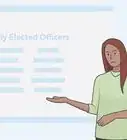This article was co-authored by Bridget Connolly. Bridget Connolly has volunteered on political campaigns at the local and federal level for over 10 years, most notably for the 2008 Obama campaign in Nevada and Josh Harder's Congressional race in 2018. She has gone door-to-door to help register voters and get out the vote in both California and Nevada.
There are 14 references cited in this article, which can be found at the bottom of the page.
This article has been viewed 17,411 times.
Deciding who to vote for is an exciting privilege of participating in a democracy—but it can also be a bit of a challenge. Research the different candidates' positions, finances, and endorsements to determine who you think would make the best choices while they're in office. You can also figure out your political views by staying educated on current events, learning about political parties, or taking political surveys.
Steps
Researching the Candidates
-
1Compare the candidates' platforms. Candidates for elections come up with a platform, which is a series of policies they promise to implement if they are elected. Read up on the different candidate's platforms by checking out their websites or social media. Keep in mind that candidates sometimes have trouble following through with their promises once they are elected.[1] [2]
- Often candidates from the same political party will have similar platforms, so you'll have to distinguish between them in other ways.
-
2Watch TV debates, if applicable. For presidential elections, there are often televised debates between candidates. Local elections that are very contentious sometimes have televised debates as well. Debates are often streamed live on major cable TV stations, online at news websites, on YouTube, and on social media.[3]
- If you don't have time to watch the debates, you can always just read a quick news summary after the debate.
Advertisement -
3Use political fact-checking websites. Candidates make a lot of claims while they are campaigning. Some of these claims fudge the facts a little, while others are outright lies. Many candidates rely on the assumption that voters will take them at their word and not check the facts. Be an informed voter by looking at fact-checking nonpartisan websites.[4]
- Two examples are like https://www.politifact.com/ or https://www.factcheck.org/.
- While all politicians (and people) sometimes stretch the truth, some do it more drastically than others. Fact-checking websites can help you determine if a candidate is trustworthy.
-
4Check voting guides from organizations you trust. News outlets, religious groups, social justice groups, and other groups who care about politics often put out voter guides. Some voter guides will lay out information for every candidate, while more partisan voter guides will recommend that you vote for certain candidates. Following the advice of a voting guide from an organization you already know you agree with can save you time in doing all the research yourself.[5]
- Read multiple voting guides to make an even more informed decision.
-
5Learn about who endorses each candidate. A political endorsement is a public declaration that you or the group you represent supports something. Politicians, celebrities, unions, and political organizations will often endorse a specific candidate who shares their values. Search online to find out who endorses which candidate.[6]
- It's important to be critical when evaluating endorsements. Just because your favorite celebrity endorses a particular candidate doesn't mean you should vote for them.
-
6Find out where each candidate gets their money. Research candidates' campaign finances by searching online. If you disapprove of the groups funding the candidate, you should think twice about supporting the candidate. Candidates finance their campaigns through individual donations, political action committees (PACS), and political parties. Super PACS, corporations, and unions also spend money on ads supporting candidates, even if they are not technically affiliated with the candidate.
- One useful website for campaign finances is http://www.opensecrets.org/.
-
7Pick the “lesser evil,” if you don't like any of the candidates. While it's best to pick a candidate that you are really excited about, sometimes none of the options will be appealing. If that's the case, don't give up and refuse to vote. Instead, vote for whichever candidate disappoints you the least.[7]
- If you dislike all the candidates the exact same amount, which is pretty rare, then voting probably won't matter to you much.
Figuring out Your Political Views
-
1Read or watch the news from reliable sources. Staying up to date on current events will help you become an informed voter because you will be better able to evaluate the candidates' claims. For example, if you read news articles about schools being underfunded, you could evaluate candidates' education proposals better. You can read or watch news online if you don't have a TV or a print subscription.[8]
- Consider reading news from different sides of the political spectrum to determine which side you lean towards.
- In the U.S., reliable news sources include The New York Times, The Wall Street Journal, and The Washington Post, among others.
-
2Pay attention to local and national politics. National politics get a lot of media attention, but your vote has even more power in local elections. Learn about candidates for office in your state, county, and city governments. Getting involved in local politics is a great way to figure out your political views because the issues will be closer to home and less abstract.[9]
- There all kinds of different local elections, like for mayor, school board, governor, and more.
-
3Learn about political parties by visiting their websites. Learning about political parties can help you make a decision as to which candidate you will support. Candidates don't always fall in line with party beliefs, but understanding a candidate's political party is a good baseline of information. Read party platforms, or statements of beliefs, to figure out their values, policies, and agendas.[10]
- In the U.S., the 2 main political parties are the Democrats: https://democrats.org/ and the Republicans: https://www.gop.com/, but there are also smaller parties like the Green Party and the Libertarian Party.
- In other countries there are additional parties, especially in countries with proportional representation or coalition governments.
- Remember that candidates don't always follow party lines.
-
4Take an online quiz to figure out your political leanings. There are many websites that can help you determine where you fall on the political spectrum. These websites will ask you a series of questions about how you side on various issues and how important that issue is to you. Then, the website will compute your results and tell you which candidates and parties most align with your beliefs.[11]
- Try https://www.isidewith.com/ or https://www.people-press.org/quiz/political-typology/.
- This can be fun to do even if you're sure what your political leanings are.
-
5Avoid making decisions based on information from social media. If someone shares an article on social media or from an unreliable website, keep in mind that the information may not be true. Visit a fact-checking website to find out whether a particularly outrageous headline is true, or ask yourself:[12]
- What's the source of the article?
- Is the author a real person?
- When was it written?
- Do the supporting sources actually back up the story?
- Is it a joke?
-
6Think for yourself when making political decisions. Of course your friends, family, and community will influence how you vote, but you should try to think independently, too. Many people vote the way they do because that's the way their parents vote or because they want to rebel against their parents. Instead, it's better to think for yourself and do your own research to come up with your political views.[13]
- Remember, your political views aren't set in stone. Many people's views change over the course of their life.
Expert Q&A
-
QuestionWhat if I don't trust what the candidates are saying?
 Bridget ConnollyBridget Connolly has volunteered on political campaigns at the local and federal level for over 10 years, most notably for the 2008 Obama campaign in Nevada and Josh Harder's Congressional race in 2018. She has gone door-to-door to help register voters and get out the vote in both California and Nevada.
Bridget ConnollyBridget Connolly has volunteered on political campaigns at the local and federal level for over 10 years, most notably for the 2008 Obama campaign in Nevada and Josh Harder's Congressional race in 2018. She has gone door-to-door to help register voters and get out the vote in both California and Nevada.
Political Activist Every candidate sounds like they care, and they’re called talking points for a reason — they sound good, they’re general, they’re high level. But look at what they voted on in the past. An incumbent is someone who’s already been in power. Look at their voting record, especially if they voted against the interest of the voters. Understanding each candidate’s record — that’s where the truth is. The best way to understand a candidate is to look at their history and their background, be educated. The internet is a great place to do that.
Every candidate sounds like they care, and they’re called talking points for a reason — they sound good, they’re general, they’re high level. But look at what they voted on in the past. An incumbent is someone who’s already been in power. Look at their voting record, especially if they voted against the interest of the voters. Understanding each candidate’s record — that’s where the truth is. The best way to understand a candidate is to look at their history and their background, be educated. The internet is a great place to do that.
References
- ↑ https://www.usa.gov/voter-research
- ↑ Bridget Connolly. Political Activist. Expert Interview. 2 April 2019.
- ↑ https://www.wired.com/story/watch-democratic-primary-debate-wednesday-thursday-miami/
- ↑ https://www.americanpressinstitute.org/publications/reports/white-papers/future-of-fact-checking/single-page/
- ↑ https://www.usa.gov/voter-research
- ↑ https://newslit.org/educators/civic-blog/evaluating-endorsements/
- ↑ https://www.washingtonpost.com/news/volokh-conspiracy/wp/2016/07/27/the-logic-of-voting-for-a-lesser-evil/
- ↑ https://www.forbes.com/sites/berlinschoolofcreativeleadership/2017/02/01/10-journalism-brands-where-you-will-find-real-facts-rather-than-alternative-facts/
- ↑ https://www.usa.gov/midterm-state-and-local-elections
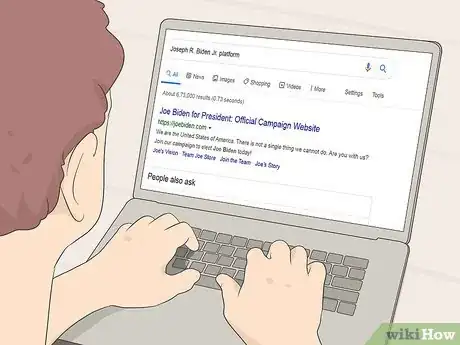

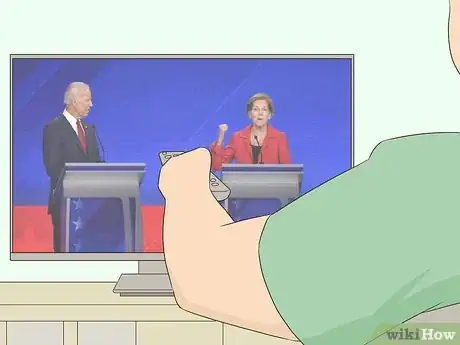

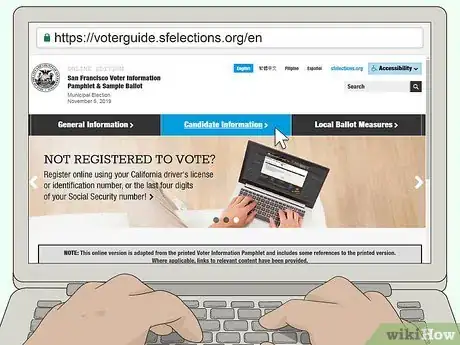





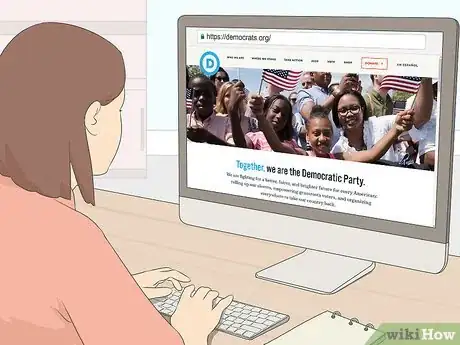
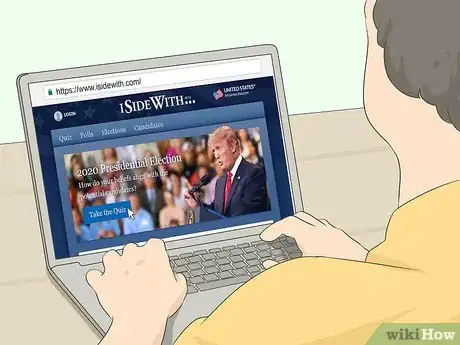

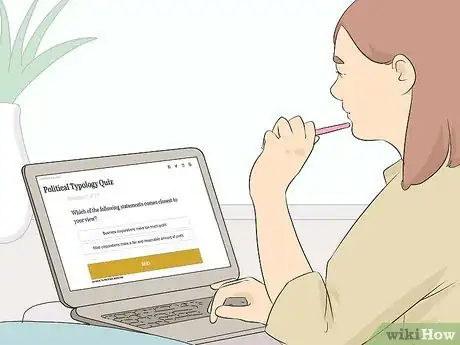








(3)-Status-of-a-Nonprofit-Step-1.webp)











